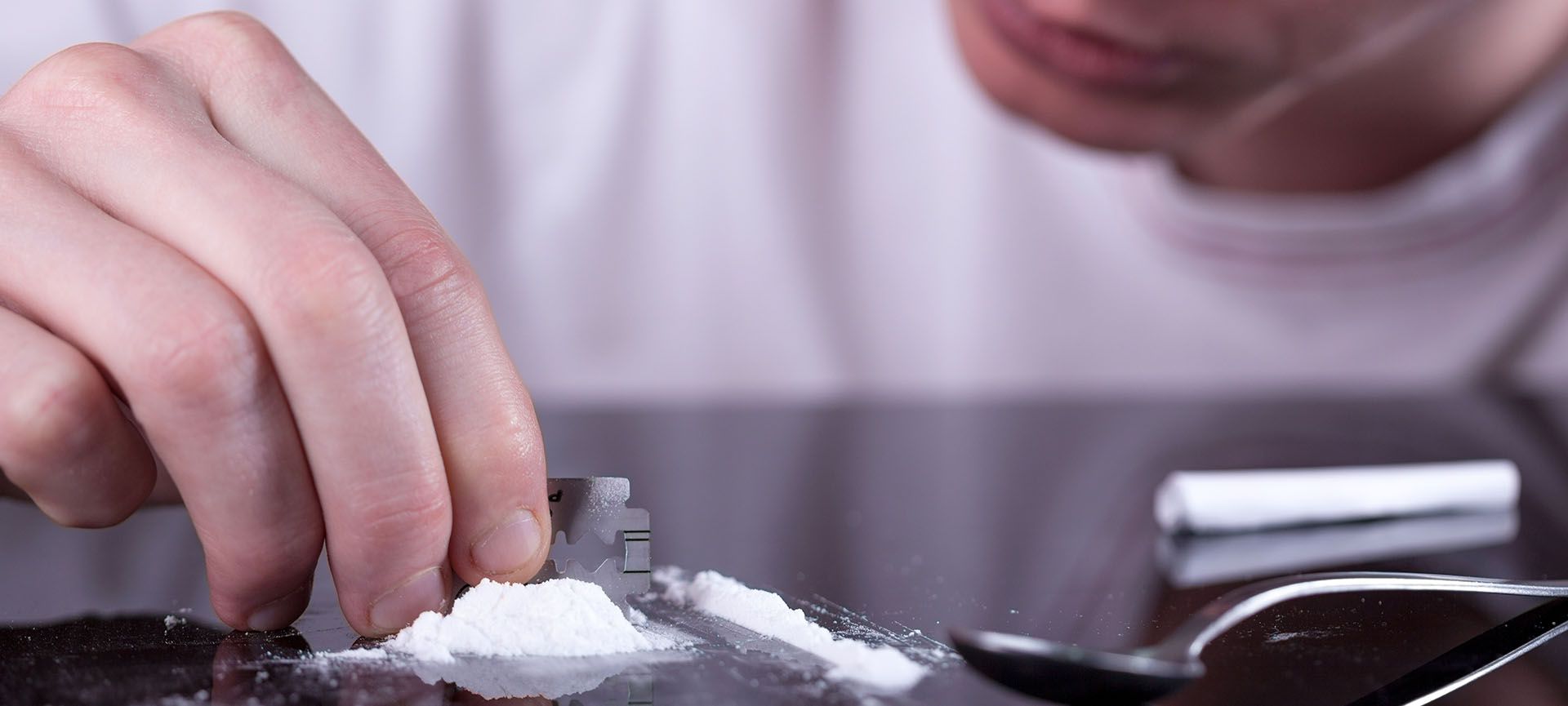
Cocaine Withdrawal: Symptoms, Timeline, Effects
Generally, cocaine withdrawal can be a difficult process. Cocaine withdrawal symptoms can be of two (2) different classes — psychological and physical symptoms. During a cocaine detox, you may experience different psychological signs and physical effects.
Nevertheless, you must find the right professionals to support your detox in a standard facility. This way, you can easily get through cocaine withdrawal symptoms and plan for real rehabilitation.
Usually, cocaine withdrawal may not be physically painful. However, it often comes with preset challenges. Addiction to any drug, including cocaine, will get your system addicted to the drug’s effects. As your body tries to adjust to the absence of these effects, you’ll experience several different mental and physical effects.
At this period, your body learns to work with the drug in your system. However, this often leads to total dependence on the drug. If you stop drug abuse abruptly, it may cause shock, and hence you’ll find it difficult to adapt without the prescription. Also, you may experience several side effects, ranging from low to high and possibly deadly.
The process where your body decides to adapt to proper functioning without the substance is known as withdrawal. Usually, your body begins the withdrawal process once there is no more intake of the substance.
After reading this article, you’ll understand the different symptoms of cocaine withdrawal. Also, you’ll understand more about what to expect during cocaine withdrawal. Before we dive deep, let’s take a look at what cocaine withdrawal is.
What is Cocaine Withdrawal?
Generally, withdrawal from drugs is a condition that starts the moment your drug-dependence ends or reduces drastically. Also, physical dependence increases as your body adapts more to the cocaine in your system. Through this adaptation, your brain will start asking for cocaine to function well and feel normal again. The moment it doesn’t get the substance at the desired level, withdrawal symptoms will start.
Be aware that a substance like cocaine is very addictive. However, there is a difference between dependence and addiction. Dependence is a cognitive evolution of the body to cocaine. Notably, this evolution of dependence often foretells the origin of physical withdrawal.
In contrast, addiction reveals a failure to quit using a drug despite the personal distress it brings. It’s a lifelong dysfunction of a person’s mental well-being that involves memory, motivation, and reward. Also, addiction is about how your body craves a behaviour or substance most particularly if it prompts an obsessive or compulsive lack of concern over results.
Cocaine Withdrawal Symptoms: What To Expect
Ultimately, most people will have different experiences with drug withdrawal, including cocaine. It’s no rocket science. It’s a function of how our systems respond to the situation or process. However, some general symptoms are common with the withdrawal experience.
Here are some of the common cocaine withdrawal symptoms:
Mood Swings
One of the most common symptoms of cocaine withdrawal is mood swings. This moment you’re feeling happy, but the next moment, you’re sad and feeling angry unnecessarily. Also, some common symptoms of mood changes include:
- Anxiety
- Depression
- Sensitivity, etc.
Even though these feelings are usually intense during withdrawal, they often stop once you pass the withdrawal stage.
Cravings
Most individuals withdrawing from cocaine often experience a strong urge to take more cocaine. If you feel this way, it means you’re experiencing cocaine cravings. It’s common with people withdrawing from addictive substances, including cocaine.
Also, cravings are stimulated by the desire to subdue cocaine withdrawal symptoms. Besides that, it’s also driven by the urge to experience the cocaine’s high pleasure again.
Fatigue
Tiredness or feeling very weak is another common symptom of cocaine withdrawal. Generally, you may feel exhausted naturally after the intoxicating effects of cocaine. However, you may have worsened the effects due to a lack of sleep. Another factor is your activities during the time you’re high on cocaine.
Additionally, cocaine can disguise the discomfort you often feel during hyperactive moments. Tho will worsen the feelings of fatigue as the cocaine effects wear off.
Problems With Sleep
One of the difficulties you experience during the cocaine withdrawal process is sleeping problems. Despite the fatigue, cocaine withdrawal usually causes sleep problems. Some of the issues you may experience with difficult sleep include:
- Unpleasant and vivid dreams
- Insomnia, i.e. having difficulty staying asleep or sleeping at all.
- Hypersomnia, i.e. having too much sleep.
Appetite Increment
Appetite increment is a distinguished phase of cocaine withdrawal. In some cases, it can be intensified by poor eating habits while you are high on cocaine. However, it’s essential to boost your addiction recovery by feeding well and having a healthy diet. For example, eating small but satisfying amounts of food, rather than bingeing.
Physical Agitation or Sluggishness
Another cocaine withdrawal symptom people undergo is sluggishness. Cocaine withdrawal often causes some physical slowing down. This is often known as conversely, or psychomotor retardation. It makes you feel physically agitated.
Related article: Why You Should Not Attempt Cocaine Withdrawal On Your Own
Effects of Cocaine Withdrawal
Generally speaking, withdrawal from cocaine isn’t as critical as alcohol or other drugs. Compared to cocaine, substances cause perhaps more deadly effects during the detox stage. Be aware that cocaine withdrawal symptoms aren’t life-threatening. Despite this fact, pursuing detox with a professional cocaine addiction treatment center in Canada is the best option.
Additionally, physical health difficulties happen when you abuse cocaine with alcohol. Withdrawal after such a lifestyle may pose a risk to your heart well-being, thus causing a heart attack. In some cases, people tend to experience seizures in cocaine withdrawal.
Generally, you may develop some depression symptoms like low motivation, energy, or mood during withdrawal. In rare cases, people may suffer from suicidal ideations. These are the reasons why addicts going through cocaine withdrawal require support and monitoring during detox. Nearly half of the people who use cocaine suffer from depression. Thus the symptoms become intense during withdrawal.
Other effects of cocaine withdrawal include:
- Aggression
- Paranoia
- Violence
These symptoms make detox dangerous for the person going through withdrawal and those caring for that person. This is one of the reasons why detox programs play an essential role in drug dependence recovery.
Notably, the severity of the withdrawal effects will depend on the following factors:
- Consumption amount
- Cross abuse of alcohol with cocaine
- Duration of cocaine use
- Underlying medical conditions
How Long Does Cocaine Withdrawal Take?
How long cocaine withdrawal takes vary depending on the individual and some factors.
- The body chemistry
- Tolerance level
- The severity
- The duration of the addiction.
- Average Dose Period
- Polysubstance Dependence
- Environment
- Co-occurring medical or mental issues
Body Chemistry
Not everyone reacts to changes in the same way. Hence the way one person reacts to cocaine withdrawal will be entirely different from how another person does. For some persons, it could take a longer time for their body to get used to the changes. Other persons may need a more extended time to adjust.
Tolerance Level
Every person has a different level of tolerance compared to another person. Therefore, the timeline for cocaine withdrawal for one person will differ from one person to another. For some people, it will be easier to tolerate the symptoms that come with it. However, for others, it will be difficult to tolerate, and they will need close monitoring.
The Severity
The severity of the symptoms of cocaine withdrawal you experience will determine the timeline of withdrawal. If you experience very severe symptoms, you will need a longer time to navigate through these symptoms. However, if your symptoms are not so intense, it will take less time to overcome them.
The Duration of the Addiction
The effects of cocaine withdrawal are more challenging for persons who have been addicted for longer periods. Hence, if you have been hooked on cocaine for many years, it will take longer for you to recover from withdrawal symptoms. The same cannot be said about a person with only a few months of addiction.
Average Dose Used
For persons who use large doses of cocaine, the duration of cocaine withdrawal symptoms will be longer than those with mild doses. They will also experience intense withdrawal symptoms compared to those with smaller doses.
Dependence on Polysubstance
If you are physiologically dependent on two or more drugs, you may experience withdrawal symptoms related to those drugs. This will increase your timeline for cocaine withdrawal. It can also lead you to have more complicated symptoms, worsening your detox experience.
Environment
The nature of your environment plays a role in your cocaine withdrawal. If you are in an environment that will cause you to experience stress or fatigue, you may begin to crave cocaine to deal with such things.
The more you find yourself in such environments, the higher your chances of having a relapse. Hence, you may complicate your withdrawal process, making it last longer than necessary.
Co-Occurring Medical or Mental Issues
You will experience more complicated and extensive withdrawal symptoms if you are dealing with other medical conditions. Your cocaine withdrawal duration is extended if you have cardiovascular disease, mental health issues like anxiety and depression. Eating and personality disorders also complicate your recovery.
You may have to treat these issues along with your withdrawal symptoms. This leads to a longer recovery timeline. It’s essential to recognize that the effects of withdrawal aren’t permanent. The primary phase, i.e. crash of cocaine withdrawal, can differ in intensity and time. Also, it can last from 24 hours to a few days.
However, like other drugs, cocaine cravings may persist for longer periods. Also, it can happen again years after attaining soberness. Notably, cocaine possesses nearly a short half-life, and cocaine withdrawal symptoms can start as early as 90 minutes after the last dose.
What to Expect During Cocaine Withdrawal
When you get high on cocaine, you’ll experience a feeling of euphoria and a sealed boost in your mood. These feelings are created by norepinephrine and neurotransmitters dopamine.
At this point, the cocaine will make the brain produce the chemicals in abundance. As addiction goes on, your body adapts to the new development and awaits cocaine to have these effects every time. So, once you quit, your body will experience low energy, motivation, well-being, and low moods. This is known as a crash.
Since the brain is not receiving the cocaine as usual again, it tends to cause havoc. Hence, you may experience the following:
- Anxiety
- Intense cravings
- Sleepiness
- Irritability
- Anhedonia etc.
Sometimes, you may become paranoid or suspicious during a crash. You may even suffer from depression or suicidal thoughts. All these are common cocaine withdrawal symptoms during this phase of cocaine withdrawal. However, long-term cocaine users are often at a higher risk of experiencing more severe symptoms.
Cocaine Withdrawal Timeline
Based on the experiences of many who have experienced the effects of cocaine withdrawal, there are three phases of withdrawal symptoms. These are:
First Phase
This phase, which is also known as the crash phase, lasts between one day and several days. In this stage of cocaine withdrawal, you may experience depression and anxiety. You may also struggle with feeling pleasure.
During this phase, you may appear sleepy and also experience fatigue and hunger. Your cravings for cocaine will also be heightened at this stage. Some persons also experience cognitive problems such as being unable to concentrate and having short-term loss of memory.
Persons with long term cocaine addiction may experience life-threatening withdrawal symptoms. These symptoms include dehydration, seizures, trembling, heart attack, arrhythmia, tachycardia, etc. However, these symptoms are rare and can be managed in addiction treatment centers.
Second Phase
In this phase of cocaine withdrawal, the symptoms may last up to ten weeks. You will continually crave cocaine in this period. You will also be easily irritated, experience fatigue, lethargy, loss of concentration, and memory loss. During this period, your mood swings and physical symptoms will begin to subside.
Third Phase
This phase of cocaine withdrawal is known as the extinction phase. In this phase, your cravings for cocaine are still present. Your chances of having a relapse in this period is also increased especially when you are exposed to triggers.
You may also experience long term issues with mood swings, apathy, and irritability. Many people experience these symptoms for extended periods even after a long time of using cocaine.
One of the things that will help you deal better with this phase is continuous support. It is important for people with more severe withdrawal symptoms to undergo their withdrawal in a rehab facility. This ensures they are always under the care of professionals who will help them manage these symptoms.
How to Cope With Cocaine Withdrawal
When you are undergoing cocaine withdrawal, it is important to use certain self-care strategies. You must also seek professional medical help. The first step in easing the effects of cocaine withdrawal is detoxifying from the drug itself. As you have seen, this process varies in length due to several factors.
Also ensure you are supported by close friends and family members who understand all you are going through. When seeking medical and professional help, be sure the cocaine addiction treatment service you choose is one that meets your needs.
During your withdrawal process ensure you take care of yourself. Your physical and mental wellbeing is very critical at this point and should be priority. Practice healthy living habits, exercise regularly, eat well, and sleep well too. When you do these, you give yourself a better chance of coping better with cocaine withdrawal symptoms.
After detoxing from cocaine, you have to undergo a treatment plan at a cocaine addiction treatment center or rehab. Some of the effective therapeutic treatments available include:
Cognitive Behavioral Therapy (CBT)
This helps patients recognize the situations that led them to cocaine addiction. It also helps them avoid and cope better with these situations.
Multidimensional Family Therapy
This is developed for adolescents with addiction problems. It helps in addressing things that influence their cravings for drugs and the patterns leading to it. It also helps to improve the overall functionality of the family.
Motivational Interviewing
This increases the readiness of people to change their behaviors and start treatment.
Contingency Management
It encourages abstinence from cocaine by reinforcing positivity.
Can Medication Help With Cocaine Withdrawal
There is presently no medication used for easing withdrawal or easing your crave for cocaine. There are some drugs such as Modafinil and some antidepressants which help to alleviate the discomforting symptoms you may experience from withdrawals.
Other symptom-specific drugs include Benadryl and trazodone, which help you deal with insomnia. However, before you use any drug, ensure a doctor prescribes it to you. Never take a drug without a doctor’s prescription.
FAQs About Cocaine Withdrawal
Here are some answers to some common questions about cocaine withdrawal.
How Long Does Cocaine Withdrawal Last?
If you are withdrawing from cocaine, one question that will go through your mind is “How Long Does Cocaine Withdrawal Last?” You must understand that the duration of cocaine withdrawal symptoms depends on the individual.
However, the cocaine withdrawal timeline usually starts almost immediately following the last dose of cocaine used. It can persist between 8 days to 7 or 8 months. Nevertheless, mental health signs can persist much longer than physical symptoms.
Is Cocaine Withdrawal Safe?
Another question people ask about cocaine withdrawal is “Is Cocaine Withdrawal Safe?” You must understand it is safe to withdraw from cocaine. Being addicted to the drug is not good for your health and deciding to be sober is one of the best decisions you can take.
However, due to the effects of the drug on your system, you will experience various degrees of withdrawal symptoms. Hence, you will need supervision and support in these times to deal with your symptoms. With that, you will navigate through the withdrawal process easier than going it alone.
Can I do cocaine withdrawal at home?
Cocaine is one of the few drugs anyone can quit anytime because of its short half-life. However, doing it alone without support may not be the best and safest option. During cocaine withdrawal, you need full support and care from friends and family and addiction treatment professionals.
Conclusion
Cocaine withdrawal can be challenging, but attaining sobriety is possible. Unfortunately, people tend to have problems quitting cocaine because of the severity of cocaine withdrawal symptoms.
Most people tend to suffer from intense cravings during cocaine detox. However, the intensity of the cravings depends on the duration of cocaine usage and consumption amount.
Furthermore, cravings can promptly hijack the addiction recovery process, thus resulting in a relapse. This is why having a support system that includes medical professionals, family, and friends can help overcome the challenges. Contact 1000 Islands Addiction Rehab & Treatment Centre for addiction treatment programs.
Related article: Common Signs of Cocaine Abuse







